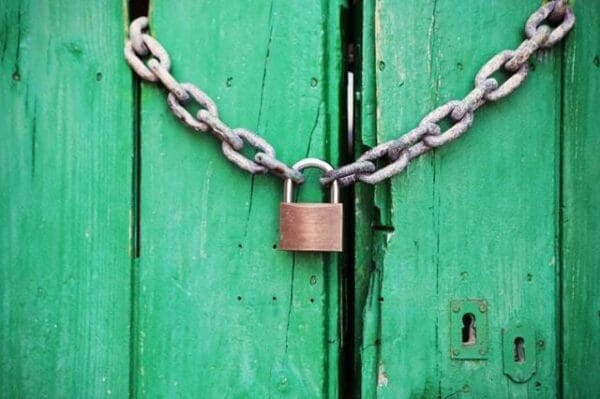Moral Compass, We All Have One
Your moral compass is the ability each of us has to judge what is right and wrong. It is at the core of decisions that we make and it moulds and changes as we live our lives. It could be described as the little voice in your brain, you know, the one that tells you not to throw the egg that’s in your hand really hard at the wall… because that would be counter-productive. On a serious note, however, your moral compass is the angel and devil we don’t see. The little ones that sit on your shoulder, but you can’t talk to them and they can’t talk to you.
They simply make the decisions for you and how these decisions are made changes over time, mostly based on your life experiences. The awareness we have of our moral compasses varies from person to person. This awareness, and your moral compass itself, can be manually changed by making yourself more aware and using this awareness to your advantage.
How to Evaluate Your Moral Compass:
The best way to evaluate your moral compass is to present yourself with a scenario. One that forces you to decide what you believe is right or wrong and this answer will depend on the stage you’re at in different times of your life.
So, here’s the scenario. Have a good think about it.
You’re with a friend at a restaurant, a fancy restaurant because, well… It’s a made-up scenario and you can eat wherever you like. Anyway, you momentarily take your eyes away from a mouthwatering menu and notice that Charlie, your best mate’s wife, just walked in. ‘Bloody hell, there’s Charlie!’, you casually think to yourself, before this changes. Your next thought: ‘But that’s… that’s not Andy… why’s Charlie here without her husband?’.
They must be work colleagues, right? But, would work colleagues hold hands over a candle-lit dinner sharing a side of fries and a bottle of wine? I don’t think so, and neither do you in this situation. You see them enjoy a lovely three-course meal and a second bottle of wine before leaving in a taxi, together. Now, you know that you’re going to see Andy at work tomorrow and you have a decision to make.

Option 1
You tell Andy, knowing that they’ve been married a long time and he may very well not believe you and thus resent you for making up such a situation.
Option 2
You don’t tell Andy and standby knowing that the love of his life is having romantic dinners with another person.
Sticky Learning ® is 7 times more effective than 1-day training courses. Plus, you will get a Chain of Evidence proving your Return on Investment. Discover soft skills training that changes behaviours long term.

The Risk
He finds out about Charlie and finds out that you knew all along and resents you for it anyway.
The Decision
Choosing Option One:
Let’s say you take option one, choosing to tell your friend. This option moves to be truthful and honest despite the potential consequences of your actions. This can tell us a lot about ourselves. The person that chooses truth and honesty has likely had this work out for them in the past, owing to them using a similar method of solving this problem because the likelihood suggests that it will work for them again. Although, it may also be due to a certain personality trait. A lot of people find it hard to keep secrets and not share information, especially when this information holds such significance. People find this hard for many reasons; power is one of them.

Secrets are power. They can give someone the ability to surprise or shock someone else and this can be an endorphin rush that is hard not to run for. On the other hand, it can also be down to a feeling of dishonesty. I feel this within my friends. As a core group of three, it’s really tough to keep a secret told to me by one of them from the other. It feels like I’m being dishonest or disloyal to whoever doesn’t know. This makes it hard to keep secrets and motivates me to tell someone.
There are a number of psychological theories behind why people would choose option one but, ultimately, it’s because their moral compass believes it right to come clean and it’s incredibly hard to ignore this instinct, especially when you are less aware of your moral compass than you could be.
Choosing Option Two:
Option two comes with a little more complication. It may be that you feel it’s not your place to get involved, it may be the fear of ruining your friendship or it may be that you’re not absolutely certain what the situation is and don’t see it right to get involved without all the facts. All of these are valid. Let’s dissect them.
If you would choose not to say anything, it might be because you don’t feel it’s your place to get involved. I just so happen to be in a similar situation at the moment: a close friend of mine is struggling with a relationship and I find myself wanting to ‘tell him what to do’. I’m afraid I’ll come across like I am ‘sticking my nose in’, if you will. I’ve offered advice but have mostly chosen to leave them to work it out between them for this very same reason. It boils down to my fear of offending him and the fact that this means more to me than helping him with his relationship, which he can do on his own. Still struggling with this one.

Is it Your Place?
The cause of option two may also be a fear of ruining your friendship or ruining their relationship by causing a problem. This likely comes from inner insecurity. Your relationship with your closest friend is probably not as fragile as that but it’s easy to believe that it is. Especially in this scenario when Andy is married to Charlie – chances are he’d choose her over you. It could also come from previous experiences. Spilling the beans may have gone south on you in the past and this will motivate your choice of option two. We’re wired as humans for self-preservation, which includes not making the same mistake twice.
Lastly, you don’t know for sure what you’ve seen. In all honesty, it’s very likely that you’ve seen what you think you’ve seen. There is no way of knowing for certain, however. The person that chooses option two based on this motivation is probably a combination of anxious and logical. Hear me out. The logical part is about gathering information, the blue brain. These people need all possible facts about the situation before making an informed decision – makes sense. The anxiety part stops them from seeing that, whilst they don’t have all the information, they probably have enough for an educated decision to be made. This one is a tough place to be.
How to Actively Engage Your Moral Compass
There is a simple method to actively engage your moral compass. This is important because the more you choose to engage and understand it, the more aware you’ll be when it’s happening subconsciously. This is the awareness I mentioned earlier. Being able to make decisions like this with moral awareness is like a superpower. It won’t see you far wrong at all.
Step 1 – Evaluate:
The evaluative stage is arguably the most important. This is the part where you’re gathering information. In the above scenario, you’d be thinking about what it is you’ve actually witnessed and the wider context of the situation. Have you seen this man before? Might he know Andy? What else might be the cause of this dinner date? These are all the things you’d be looking at in the evaluation.
The idea here is to gather as many hard facts as possible, like gathering evidence at a crime scene… without the guarantee that there’s been a crime. That makes it sound harder than it is. It’s really all about being as objective as possible and looking at the situation from the most unbiased perspective you can.
Step 2 – Organise the Facts:

What matters and what doesn’t. That’s where you are. A mental pros and cons list is a great tool here. In fact, a physical pros and cons list might even work better if you’re a sensory thinker.
I know it sounds incredibly primary school of me to recommend a pros and cons list, but it works. For anything in life, writing out what benefits you gain and what you lose or don’t gain from something is a really easy way to make a complicated situation less complicated. The pros of telling Andy would be; protecting a friend from being mistreated and showing your loyalty by being honest with him. The cons; potentially ruining a friendship between you and him, potentially ruining a marriage between him and her or simply seeing your best friend go through that kind of heartache.
It’s clear that there are more cons than pros, but the weight of each of them matters too. Protecting your friend from betrayal may mean a lot more to you than seeing him upset by it, or vice versa, depending on who you are. Write your pros and cons list and then decide what matters most to you, then make your final decisions.
Step 3 – Act:
At some point after all this fact gathering and consideration, you are going to have to make a decision and act upon it. This is the scary part. Consider, also, that not telling Andy involves doing nothing. Doing nothing is always the easiest thing to do but quite often the worst decision. Doing nothing is the decision.
Whatever you decide to do, go about it in a way that considers what’s right and wrong. You may choose to tell him, but don’t come out all guns blazing with: ‘Andy mate Charlie’s cheating on you. I wouldn’t ‘ave that personally.’ Seems a little insensitive, right?
Well, the better way to do it would be to take Andy out for a beer (or a mojito, whatever floats his boat) and carefully explain to him exactly what you saw without making any accusations. Remember, the decision isn’t to tell Andy whether Charlie is being unfaithful or not, it’s whether you should tell him what you saw. What he determines from this is up to him. Equally, if you choose not to tell him, don’t tell him. I know it sounds obvious but don’t even hint, don’t tell anyone else, just lock it away. You have decided that that is the best decision to make, so stick by it.

Sometimes, Making This Decision is Not Necessary
Whilst I’ve spent 1700 odd words explaining how to use your moral compass and why it’s important, there’s something even more important. Yes, we should all be trying to actively engage with our compasses and using them to make better decisions. However, these decisions should not always be evaluated in such depth.
The big question, before you start with your big flipchart pens and your pros and cons list, is whether it’s any of your business at all. Andy is your friend, so it is somewhat your business. You have the option to protect a friend which means the evaluation is necessary to make an informed decision.
Sometimes, or even a lot of the time, however, the answer to this big question is ‘no’. Maybe Andy is a friend of a friend. This would mean there’s still some degree of decision making required but all you are really deciding is whether to let his actual best friend know about what you saw or not. This is a much smaller, much lighter decision to make that probably won’t require a pros and cons list, etc.
Knowing when not to overthink things is important.
Just trying to engage your moral compass is a step in the right direction.
Whether you leave your device after reading this article and take action on all these methods or not is, of course, up to you. If you do anything, though, just be aware. When faced with a moral decision, think about it. Try and use it better or even simply try and be aware of your subconscious decision making. You and your peers will be better off for it.




